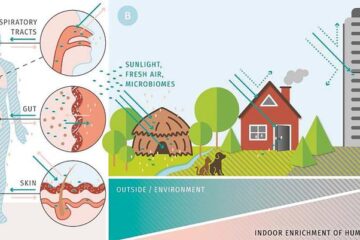Mycosis-Detect – In situ diagnosis of fungal infections by detection of Chitosan

Fungi comprise chitin as a natural building block in their cell wall. Pathogenic fungi are often able to convert the chitin to chitosan – probably to escape from being recognized by the immune response of the host. Thus, chitosan is an attractive target for the diagnosis of fungal infections allowing further treatment.
The present invention relates to a detection of pathogenic fungi using a GFP-labeled, catalytically inactive chitosanase, which retained the affinity and specificity towards chitosan. This new method provides a rapid, reliable and robust system. Commercial Opportunities: Fungal infections are a widespread ailment throughout flora and fauna. In humans, in particular in immunosuppressed patients, the increased incidence of severe mycoses is a challenge.So far, many attempts were run to produce antisera or antibodies against chitosan but have been of limited success due to the lack of antigenicity connected to chitosan. Additionally, antibody production is accompanied by high costs. Consequently, there is an unmet medical need for a quick, easy and cheap in situ detection of chitosan. The mutein described in the invention is a high-affinity binder of chitosan that could be used for analytical or diagnostic purposes. Both phytopathological and medical applications are conceivable.
Weitere Informationen: PDF
PROvendis GmbH
Tel.: +49 (0)208/94105 10
Ansprechpartner
Dipl.-Ing. Alfred Schillert
Media Contact
Alle Nachrichten aus der Kategorie: Technologieangebote
Neueste Beiträge

Forschende nutzen ChatGPT für Choreographien mit Flugrobotern
Robotik und ChatGPT miteinander verbinden… Prof. Angela Schoellig von der Technischen Universität München (TUM) hat gezeigt, dass Large Language Models in der Robotik sicher eingesetzt werden können. ChatGPT entwickelt Choreographien…

Wie Gebäude das Mikrobiom und damit die menschliche Gesundheit beeinflussen
Führende internationale Forschende unter Federführung von Kiel Life Science-Sprecher Professor Thomas Bosch von der CAU beschreiben eine völlig neue Dimension der Mikrobiomforschung und weisen auf die bislang kaum untersuchten Auswirkungen…

Wie das Immunsystem von harmlosen Partikeln lernt
Unsere Lunge ist täglich den unterschiedlichsten Partikeln ausgesetzt – ungefährlichen genauso wie krankmachenden. Mit jedem Erreger passt das Immunsystem seine Antwort an. Selbst harmlose Partikel tragen dazu bei, die Immunantwort…

















